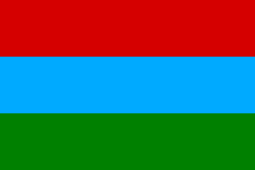The Republic of Karelia is integral to checking expansion of the Western alliance according to leaders inside the Kremlin. Outside Russia few people recognize how much the country’s northwesternmost region presents challenges for Moscow. After Finland decided to join the North Atlantic Treaty Organization (NATO), Putin looked at transforming Karelia into a second Kaliningrad-like oblast. Earlier, following the Winter War of 1939-40, the Lutheran dominated region had been split in two with Finland ceding Russia the eastern part of the Karelian province and Finland retaining the west. The Finnic ethnic groups living there are indigenous to the historical region of Karelia although many live inside Russian territory.
As a potential source of military power, Russian Karelia could be used to check any Western alliance moves into Scandinavia or the Arctic. “…in the event of a crisis, it could prevent NATO from severing the single-track rail line connecting central Russia and the Kola Peninsula, where a large portion of Russia’s strategic arms are located,” says Paul Goble of the Jamestown Foundation. It may, however, be an overreach that sparks the centrifugal forces in the North that Moscow fears.
In January Russian Defense Minister Sergei Shoigu announced Russia’s intent to expand the Russian army there over the next several years. With Finland joining NATO, Russia’s border with the Western alliance has grown by more than 745 miles. Shoigu says this would involve the formation of a new Russian army corps of some 100,000 men in Karelia. Goble points out that Artur Parfenchikov, Russian head of the Karelian government, and Russian analysts, such as Vladimir Klimanov, head of the Moscow Center for Regional Policy, are “upbeat about this possibility.” Klimanov suggests in the publication Rueconomics.ru that an army corps in Karelia would become “a driver of economic growth” in the depressed region of 528,000 people.
Finnish military expert Petri Mäkelä, however, counters it saying he doubts Moscow can achieve its objective as the existing infrastructure in Karelia is in poor shape and the republic has lost many men in Putin’s war in Ukraine. Karelians, in general, tend to hold anti-war and anti-military attitudes that add to Moscow’s challenge in the region. Earlier this year Karelian activists argued that they don’t believe that Moscow will provide promised funds to help economic development in the region. Instead, they see the move to increase Russian soldiers in the area as one designed to create the conditions needed for a final homogenization of the republic and the Karelian Finnic people.
This week in the Russian online publication Region.expert, one analyst points out that the populace in the Karelian region is concerned that what Putin’s forces are doing in Ukraine could be done to them. In the last 14 months alone Karelia’s economy has contracted by more than 10 percent, which is five times as much as the rest of the Russian economy. Putin has not sent the region economic help and the people are growing angry. By last summer anti-war activism was rampant in the area, with some even creating a Facebook page to announce their opposition to the war in Ukraine and lack of compensation to Karelians whose incomes have suffered. Russia’s Wagner Group refuses to recruit there, despite the widespread poverty from which they typically get their enlistees. It is out of fear of finding no recruit willing to commit to the war, notes Goble. Russian propagandists also have given up on the area.
Many Karelians have decided to exit the eastern portion of the republic and head for Finland. The result is that today fewer than six percent of all republic residents are ethnically Karelian. Moscow refuses to recognize the language spoken in the area, further infuriating the people. Goble says this makes them the only autonomy in Russia without the titular nationality language. “Moscow’s tendency [is] to treat them as if they are Finns rather than a nation in their own right,” notes Goble. Moscow views the indigenous people of Karelia as close to secessionists. If Moscow does go through with its plans to stage a large army there, it could heighten regional tensions and bring Karelia closer to war. Many in the area were outraged that Moscow is not only attempting to move its soldiers there but also pushing to get the Karelians themselves to bear most of the cost of those occupying forces. It may end up the final blow to what stability remains in the area.
Daria Novak served in the U.S. State Dept.
